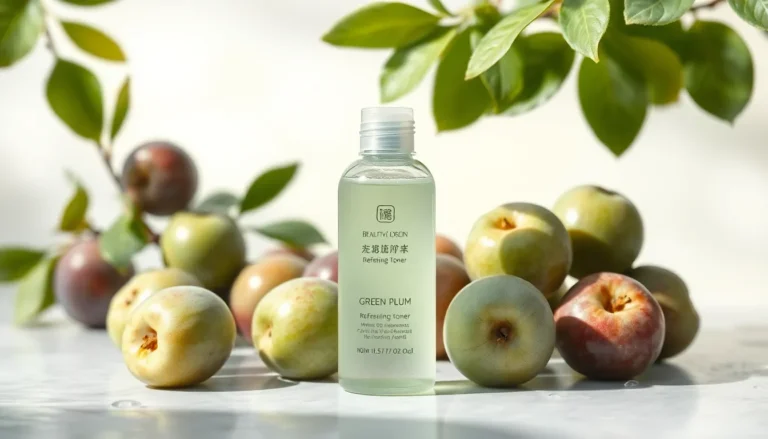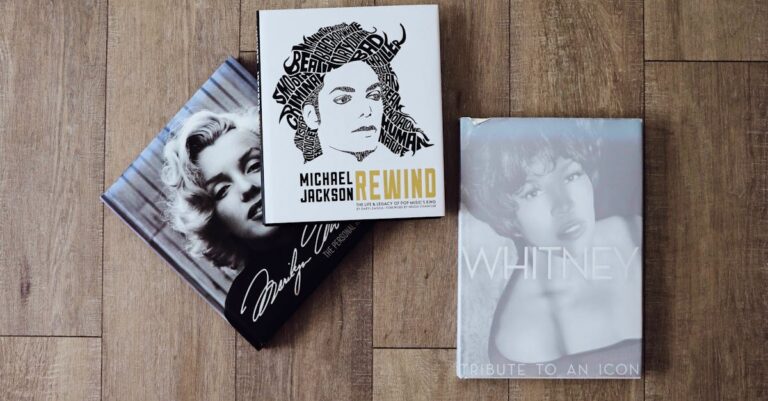Table of Contents
ToggleIn a world where beauty trends come and go faster than a TikTok dance challenge, staying ahead can feel like a full-time job. From the latest skincare potions that promise to turn back time to makeup hacks that could make even Picasso raise an eyebrow, the beauty landscape is constantly evolving. It’s enough to make anyone’s head spin—or their foundation shade go horribly wrong.
Overview of Beauty Insights
Beauty insights provide valuable understanding of current trends and consumer preferences in the beauty industry. Observing shifting demands reveals an increased emphasis on natural ingredients and transparency in product formulation. Consumers lean toward brands that prioritize sustainability and ethical practices.
Analyzing social media platforms shows beauty influencers play a crucial role in shaping trends. They often highlight effective skincare routines and innovative makeup techniques, influencing follower choices significantly. Additionally, data from consumer surveys indicates a growing preference for personalized beauty solutions.
Innovative technologies such as augmented reality (AR) and artificial intelligence (AI) enhance the shopping experience, allowing users to try products virtually before making a purchase. Brands incorporating AR technology report higher customer satisfaction and increased sales.
Moreover, the trend of inclusivity within the beauty industry continues to expand. Makeup lines offering a diverse range of shades cater to various skin tones, promoting a sense of representation and acceptance.
Exploring these insights showcases the dynamic nature of beauty consumerism. Responding to these trends enables brands to connect more effectively with their audience. Beauty insights offer an understanding that promotes informed choices for both brands and consumers.
Trends in the Beauty Industry
Current trends shape consumer preferences and drive innovation. The beauty industry experiences constant evolution, influenced by a variety of factors.
Natural and Organic Products
Natural ingredients dominate market interest. Consumers increasingly prefer organic formulations that promote skin health. Popular examples include products with botanical extracts and essential oils. Demand for transparency in ingredient sourcing continues to rise. Ethical practices support this shift, with brands emphasizing cruelty-free and eco-friendly approaches. Research indicates that 55% of consumers are willing to pay more for sustainable beauty products. By prioritizing natural solutions, brands position themselves to meet modern consumer expectations.
Emerging Technologies in Beauty
Technological advancements transform the beauty landscape. Innovative tools like augmented reality (AR) allow users to virtually try products before purchase. Many brands utilize artificial intelligence (AI) for personalized recommendations, enhancing customer experiences. Statistically, 70% of beauty shoppers express interest in AI-driven solutions. These technologies streamline the shopping journey and minimize returns. As a result, the integration of tech in beauty continues growing, aligning with consumer demand for efficiency and customization.
Consumer Behavior in Beauty
Consumer behavior in the beauty industry reflects strong trends driven by various influences. Social media platforms play a crucial role in shaping these behaviors.
Influences of Social Media
Social media influencers guide beauty trends and consumer choices effectively. Their recommendations often lead to immediate spikes in product demand. Studies show that about 70% of consumers trust influencer opinions more than traditional celebrity endorsements. User-generated content further alters perceptions, showcasing real results from everyday users. Visual platforms like Instagram and TikTok enhance product visibility, enticing potential buyers. Short video tutorials and before-and-after images create a desire for specific products. Engaging with these platforms provides insight into consumer preferences and anticipated trends, emphasizing the importance of constant adaptation by beauty brands.
The Rise of Sustainability
Sustainability drives a significant shift in consumer purchasing decisions. Interest in natural ingredients has surged, with consumers actively choosing organic formulations. Research indicates that 55% of individuals express willingness to invest in sustainable beauty products. Transparency in sourcing also matters; consumers desire assurance about the origins of their products. Brands that prioritize eco-friendly packaging and ethical practices resonate with conscious buyers. The growing awareness of sustainability impacts brand loyalty significantly, driving consumers to support companies that align with their values. Companies that adopt these strategies stand to gain a competitive edge in today’s market.
Personalization in Beauty
Personalization in beauty increasingly transforms consumer experiences. Shoppers seek tailored solutions that cater to individual needs, resulting in higher satisfaction rates.
Customizable Skincare Solutions
Customizable skincare solutions resonate with consumers. Brands offer personalized products based on skin types and concerns. Options like mixing serums or selecting specific ingredients enable users to create formulas tailored to their unique needs. Recent studies show that 80% of consumers prefer products designed specifically for their skin issues. With rising interest in holistic beauty, brands incorporating quizzes or consultations enhance personalization. Accessible options empower consumers to invest in skincare that aligns with their goals.
AI and Beauty Recommendations
AI-driven beauty recommendations significantly influence purchase decisions. Users appreciate tailored product suggestions that match their preferences. Research shows that 70% of beauty shoppers express interest in AI solutions enhancing their shopping experience. Technologies analyze skin types, preferences, and even past purchases to deliver precise recommendations. These smart systems reduce decision-making time and minimize returns, addressing common consumer pain points. Personalized recommendations lead to greater confidence in product choices, fostering brand loyalty among users.
Market Analysis of Beauty Insights
The beauty market is rapidly evolving, shaped by trends and consumer preferences that drive competition among brands.
Major Brands and Their Strategies
Leading brands prioritize natural ingredients and sustainability. L’Oréal, for example, focuses on sustainable sourcing and offers vegan products. Estée Lauder invests in technology, enhancing personalization through data-driven insights. Procter & Gamble is committed to transparency, actively communicating ingredient sourcing to consumers. Shares of these companies reflect their adaptability, as over 55% of shoppers prefer brands with ethical practices. Engagement with beauty influencers also boosts brand visibility; studies indicate that 70% of consumers trust their recommendations over traditional advertising.
Market Growth Projections
Market analysts anticipate significant growth in the beauty industry. The global beauty market is projected to reach $800 billion by 2025, reflecting a compound annual growth rate (CAGR) of 5.7%. Increased interest in clean beauty lines contributes to this expansion, with 63% of consumers willing to switch brands for cleaner formulations. Personalized beauty solutions continue to drive sales, as 80% of users express a preference for tailored products. Potential shifts in the online shopping experience, driven by AI and AR tech, add to this growth. Current trends show that 70% of beauty shoppers welcome AI-driven recommendations, further enhancing market dynamics.
The beauty landscape is evolving at an unprecedented pace. As consumers increasingly prioritize natural ingredients and personalized solutions, brands must adapt to meet these demands. The influence of social media and technology continues to reshape how beauty products are marketed and consumed.
With the rise of AI and AR technologies, the shopping experience is becoming more intuitive and tailored. This not only enhances consumer satisfaction but also drives brand loyalty. As the market expands, staying informed about these trends is essential for anyone looking to navigate the beauty industry effectively. The future of beauty promises to be dynamic and exciting, with endless possibilities for innovation and connection.


